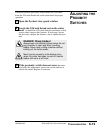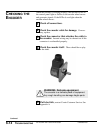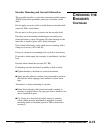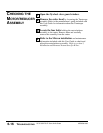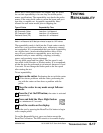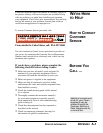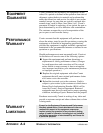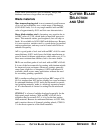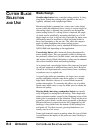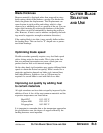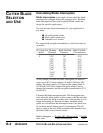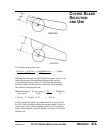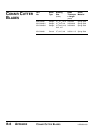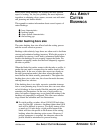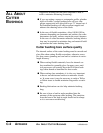
Cutter blade characteristics such as material, design, and
thickness can have a large effect on cut quality.
Blade materials
Blue tempered spring steel is most commonly used because
of its cost and availability over a wide range of thicknesses
(0.010-0.062 inch). It is a very tough material with an HRC
value of approximately 48-51 and fair wear characteristics.
Razor blade stainless steel is becoming very popular due to
its HRC value of 57-58, which leads to improved wear resis-
tance. This material retains good toughness, but will chip or
break. It is available in 0.010-0.062 inch thicknesses. Because
it is non-corrosive, stainless steel is a good choice for medical
cutting applications, and may even be coated with Teflon to
enhance cut quality.
A-2 is a good grade of tool steel with an HRC of 60. Its mini-
mum thickness (0.031 inch) forces the blade manufacturer to
grind it down for thinner applications, which adds cost. A-2 is
more wear resistant than stainless, but is also more brittle.
M-2 is an excellent grade of tool steel with an HRC of 63-66.
It is one of the best materials for coating with titanium nitride
for improved wear resistance. (However, coatings generally
cause some slight loss of sharpness.) 0.025 inch material is
available, which covers many applications without the need
for secondary grinding operations.
D-2 is another excellent tool steel with an HRC range of 58-
60. It is tougher than M-2 but has slightly less wear resistance.
Its minimum thickness (0.035 inch) and the need for special-
ized grinding materials, make it a relatively expensive materi-
al. It is the material of choice for cutting Kevlar-reinforced
hose.
CPM 10-V is a form of carbide developed especially for the
high speed punch industry. With an HRC of 60-62 and a
toughness that far exceeds D-2, it is by far the best cutting
blade material. Because its minimum thickness is 0.035 inch,
and it requires the use of diamond grinding wheels, CPM 10-
V is the most expensive of the blade materials.
CUTTER BLADE
SELECTION
AND
USE
UGE059/1003 CUTTER BLADE SELECTION AND USE
APPENDIX B-1



